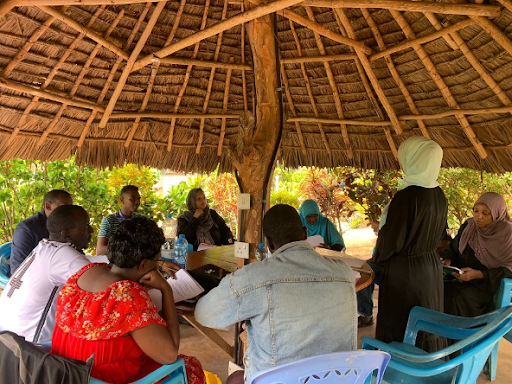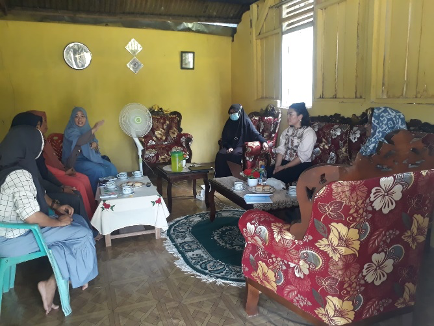Reimagining Religion, Security, and Social Transformation
The project is part of the “Joint Initiative for Strategic Religious Action” (JISRA), which aims to co-create a strategy to advance the Right to Freedom of Religion or Belief (FORB) in seven countries. JISRA is an international interfaith consortium consisting of Mensen met een Missie, Faith to Action Network, Tearfund (UK and Netherlands), and Search for Common Ground. JISRA is funded by the Dutch Ministry of Foreign Affairs (within the policy framework “Power of Voices”).
As part of the JISRA Knowledge Agenda, this research project aims to contribute to the study of religion, security, and social transformation. Furthermore, it aims to inform policy and practitioners’ efforts to more comprehensively address the complex, nuanced role of religion in conflict, violence, and (post-conflict) social transformation processes.
The overarching research question this project explores is: What discourses, practices and behaviours do religious communities narrate and perform in relation to conflict and (post-conflict) social transformation processes?
Working in collaboration with JISRA Consortium members and local partner organizations, the project utilizes an intersectional, interdisciplinary framework, drawing on theoretical and methodological insights from history, international relations, religious studies, social-psychology, peace and conflict studies, youth studies, gender studies, sociology and anthropology; and on practical insights from practitioners within the JISRA program. The project aims to identify and analyze the different ways religious actors of various kinds engage within, across, and outside their communities, focusing specifically on the role of women and youth.
Article 18 of the Universal Declaration of Human Rights declares that everyone has the right to freedom of thought, conscience, and religion. This right includes the freedom to change one's religion or belief and to practice it alone or with others, publicly or privately, through teaching, worship, and observance. Freedom of religion or belief (FoRB) is also protected by various international human rights treaties. It is a universal right that benefits everyone, promotes respect for diversity, and contributes to good governance, development, the rule of law, peace, and stability. However, there are significant differences and conflicts in the interpretations and applications of FoRB.
Together with JISRA’s global advocacy strategy, our project examines how religious actors approach the discussion of the right to FoRB within their own communities (intra-religious), with other religious communities (inter-religious) and with other non-religious actors (extra-religious), including governmental (national and international) and civil society (national and international). In particular, the project focuses on how religious actors navigate the socio-political sensitivities associated with concepts, practices, and discourses such as “religion”, “belief”, “freedom” and “human rights” in cross-cultural contexts.
Fieldwork
Fieldwork was conducted in Kenya and Indonesia. A glimpse at our research work is as follows:


You can read more about the fieldwork in our posts for the Religion Factor Blog:
We also have additional information on our workshops conducted in Indonesia.
Preliminary findings were disseminated as follows:
Badurdeen, F. A. (2024). Badurdeen, F. A. (2024). Freedom of Religion or Belief (FORB) nexus with Preventing and Countering Violent Extremism (PCVE) projects in Kenya and Indonesia. Presentation at the 14th International Conference on Religion and Spirituality in Society, ‘Spaces, Movement, Time: Religions at Rest and in Movement,’ Panel: The Politics of Religion, at the Institute of Religious Studies, Complutense University of Madrid, Spain, 23 May 2024.
Badurdeen, F. A. (2024). Freedom of Religion or Belief (FoRB) Interventions in Preventing and Countering Violent Extremism in Kenya. Presentation at the symposium: Development NGO Responses to address Violent and Hateful Extremism (VHE), hosted by Pwani University, Kenya, & Deakin University, Melbourne Australia. At the Premium Inn, Mombasa, Kenya, 24 May 2024.
Badurdeen, F. A. (2023). Freedom of Religion or Belief Ideals in Preventing and Countering Violent Extremism (PCVE) projects in Kenya in the Panel: Protecting the Public Interest in the wake of Terrorist Attacks - Suspect Communities and State Response. Presented at the ‘Countering Terrorism and Violent Extremism in the Public Interest’ forum, Asser Institute, Den Haag, Netherlands, on the 31st October and 01st November 2023.
Research team
Dr. Fathima Badurdeen Azmiya (f.a.badurdeen rug.nl)
Dr. Manoela Carpenedo (m.carpenedo.rodrigues rug.nl)
Prof. Erin Wilson (e.k.wilson rug.nl)
The right to freedom of religion or belief of minority communities - POLICY BRIEF
Minority communities occupy precarious positions in a global political system built on nation-states. Historically, many national identities have formed around religion. Policy efforts on the right to Freedom of Religion or Belief have often been focused on protecting the rights of vulnerable religious minorities aroundthe globe. Yet focusing solely or primarily on religious minorities overlooks the needs of other minorities whose rights are also protected by Article 18. Such vulnerable groups include atheists and the non-religious, traditional and indigenous spiritualities, and the LGBTQI community. The policy paper below expands on the findings of recent data collected in Kenya and Indonesia as part of the Joint Initiative on Strategic Religious Action (JISRA) project.
You can find more information via the link below:
| Last modified: | 11 April 2025 2.52 p.m. |
